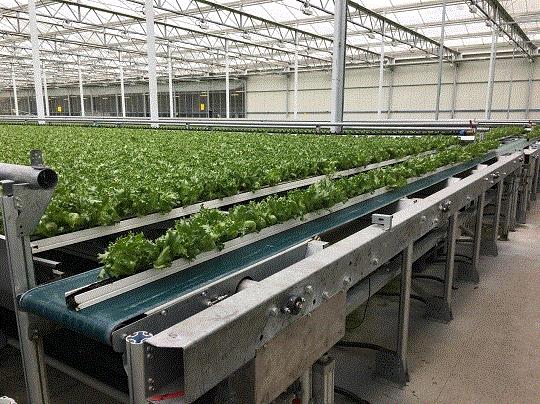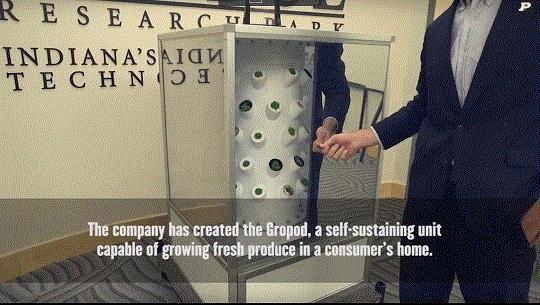The Question of Organics
In the last issue of the newsletter, I asked if food would shift toward primarily organic, based on a study from the Organic Trade Association predicting Millennials would push food production in that direction in the next 10 to 20 years. Here’s one response I received from an organic farmer (edited for space):
“Interesting question. Conventional farmers and produce growers are scared spitless to try to grow without all their pesticide and chemical fertilizer Band-Aids. However, more and more organic producers the world over are having good success growing high-quality, nutrient-dense food and feed with solid organic programs. It takes a paradigm shift, and there’s a significant learning curve, but I firmly believe that we can feed the world organically. There is a great need for more research money to go into organic production, so that there is a clearer understanding of how to overcome the new challenges faced.
Ultimately, the consumer will decide how much of the market will be organic. Producers will figure out the logistics easily as the demand, and therefore the incentive, grows. (Look at how quickly the cannabis growers have exploded and met the new market opportunity). As consumers learn the benefits of eating nutrient-dense foods that are free from harmful chemicals and genetic engineering, they will put their grocery money in the organic aisle and therefore create a demand for it.
This will, of course, not happen overnight, but the demand is steadily growing, and the American producer should be looking for ways to meet that demand. The rewards in our health and overall well-being will surprise many.”
I’m happy to hear more comments if you would like to weigh in! Email me at jpolanz@ballpublishing.com.

What Constitutes Organics?
As the organic market grows, there continues to be a tussle over whether certain types of growing qualify—namely hydroponics, aquaponics and aeroponics. The Crops subcommittee that reports to the National Organic Standards Board (NOSB) decided in an August 29 meeting it would recommend prohibiting aeroponics (6 to 0 vote), aquaponics (7 to 2 vote) and hydroponics (6 to 3 vote) production from organic certification.
It also will recommend limiting container production (6 to 3 vote) from organic certification and requires the following for certification: “a limit of 20% of the plants’ nitrogen requirement can be supplied by liquid feeding and a limit of 50% of the plants’ nitrogen requirement can be added to the container after the crop has been planted. For perennials, the soluble nitrogen feeding limit is calculated on an annual basis. Transplants, ornamentals, herbs, sprouts, fodder and aquatic plants are exempted from these requirements.”
Right now, these are just recommendations, with the subcommittee in its proposal to the NOSB citing everything from the very definition of organic taking into account the plant’s relationship with soil to potential inefficiencies of greenhouse growing (specifically related to heating and lighting).
“Aeroponic, hydroponic and aquaponic production systems can be productive cropping systems, which can be appropriate and well adapted to specific situations,” write the subcommittee. “However, that does not mean those systems are compatible with the principles of organic production or should quality them for organic certification.”
Want to read the whole document that’s being submitted to the NOSB for the upcoming fall meeting? Click here and start on page 65.
Disagree? Or agree and want to lend your support? Either way there’s still time for your voice to be heard. You can submit written comments here until October 11. The NOSB will hear oral comments during a pre-meeting webinar from 1:00 to 4:00 p.m. October 24, and if needed, again from 1:00 to 4:00 p.m. October 26. Click here for the link to register for the webinar.
The NOSB will have its fall meeting October 31 – November 2 at the Omni Jacksonville Hotel in Jacksonville, Florida. Registration is closed for oral comments at the meeting, but you can email Michelle Arsenault to get on the waiting list.

And Now, Something Not About Organics: An LED Webinar!
First of all, you should absolutely check out our new websites: www.growertalks.com and www.greenprofit.com. They are gooor-geous. And they house a lot of great information, like our next webinar coming up today (!), October 5 at 1:00 p.m. Eastern/Noon Central on "Getting Started With LED Lighting."
If you’re not sure about LEDs yet, take an hour and check out what guest expert Dr. Abhay Thosar, senior plant specialist with the Horticulture LED Solutions division of Philips Lighting, has to say. He'll talk about the following with host Chris Beytes:
-
The importance of comparative lighting scenarios—how to track and measure
-
How LED lighting may impact crop inputs and other operational factors
-
Why LED lighting isn’t “one size fits all”
-
Results from growers that have conducted trials under Philips LEDs
Click here to register. If you can’t watch it today, register anyway and watch the archived version whenever you want at the same link.
Learn More About Medical Marijuana
If you're interested in this growing market, Nexus Greenhouse Systems is hosting a “Michigan Medical Cannabis Cultivation and Licensing Seminar” in Romulus, Michigan (it’s the town in which the Detroit airport is located for easy access and a complementary shuttle is provided to the hotel).

There are two days to choose from: Wednesday, November 8 or Thursday, November 9 (the sessions are the same both days).
The seminars are specific to Michigan’s medical cannabis industry, but anyone can attend and take some of the basic information to use in their own state (if you have or are getting medical marijuana, of course).
Attendees will: Learn essential business, regulatory and cultivation best practices necessary to survive and thrive in the medical cannabis industry in the emerging state of Michigan from a broad scope of experienced cannabis professionals.
Speakers include:
-
Joseph Wright, former head of the IL Medical Cannabis program on avoiding pitfalls and mistakes in the application process, as well as once an operation is up and running
-
Brian Corr, PhD, grow consultant with more than 40 years of growing experience with a Grower 101
-
Paul Golden, an environmental engineer who helps design hi-tech cannabis greenhouses with a focus on production optimization
-
Plus many more who can help you with every aspect of your operation.
The sessions run 8:00 a.m. to 5:00 p.m. with a continental breakfast and lunch included. There will be plenty of networking opportunities with cannabis industry professionals. Cost is $299 per person with discounted group rates available.
For more and to sign up, visit: http://www.nexuscann.com/mi-seminar/

New NFT System Available in U.S.
The Finnish company Green Automation has brought its well-developed, fully automated hydroponic NFT system to the United States. The system was developed more than 10 years ago in Helsinki, Finland, and now Green Automation systems are running in Massachusetts, New Hampshire, New York and Illinois. The operations vary in size from 1 to 3 acres, and can produce more than 1 ton of lettuce per acre per day.

The Green Automation hydroponic NFT growing system is fully automated, from medium filling and seeding to harvesting. The lettuce is moved automatically through the greenhouse during the entire growing process. Pictured: Conveyor belts transporting the lettuce to the harvesting station.
“With feet on the ground now here in the U.S., where more than ever the end customer seeks nutritious, locally produced fresh food, the timing is perfect. Consumers are more exacting about consuming food that is produced naturally, without pesticides and on a year-round basis,” says Tero Rapila, co-founder and CEO of Green Automation Export. “Our fully automated and inclusive seed-to-harvest system not only uses 95% less water than traditional field farming, but can achieve tremendous product yield for a fraction of the labor costs.”
Tero says the system addresses field harvest issues like labor, water-shortages and efficiency. Click here to find out more about the systems.

Grow Your Own: The App
Lots of people are still skeptical about whether a computer can create food for you. Trekkies know it will happen eventually (c’mon, we all want to be able to say “Earl Grey, hot” just once, right?). A couple of recent college graduates from Purdue’s Polytechnic Institute are looking for ways to get the ball rolling and have formed a startup company called Hydro Grow LLC to commercialize an automated growing device they developed at the school.

The appliance is called the Gropod, a “self-sustainable refrigerator-sized unit capable of growing fresh produce in a consumer’s home,” according to a release from Purdue University. The system uses advanced algorithms that make it aware of the types of plants inside and how to grow them.
“Users will be able to order the seed pods of their choice via our phone app, plug the seed pod into their system, update the phone application and let the produce grow until it’s ready to harvest,” says Ivan Ball, one of the co-founders of Hydro Grow with Scott Massey. “Users can remotely monitor the production of produce within each unit. The system will also have a clean cycle every few months that is activated via the phone application.”
Sounds great, but I’m curious to hear what happens when a crop is struck by some pest or disease? Does the app identify that and tell the owner what to do? We’ll keep watching these young entrepreneurs to see what happens next. So far, they’ve raised $80,000 to get their creation onto the market and hope to launch it by 2018.
Click here for a link to the full story.



As always, feel free to email me at jpolanz@ballpublishing.com with comments, questions, news and views.
Until next time,

Jennifer Polanz
Editor-at-Large
Inside Grower
This email received by 25,709 loyal readers!
Interested in advertising in Inside Grower? Contact Paul Black or Kim Brown and they'll show you how easy, effective and affordable it is.